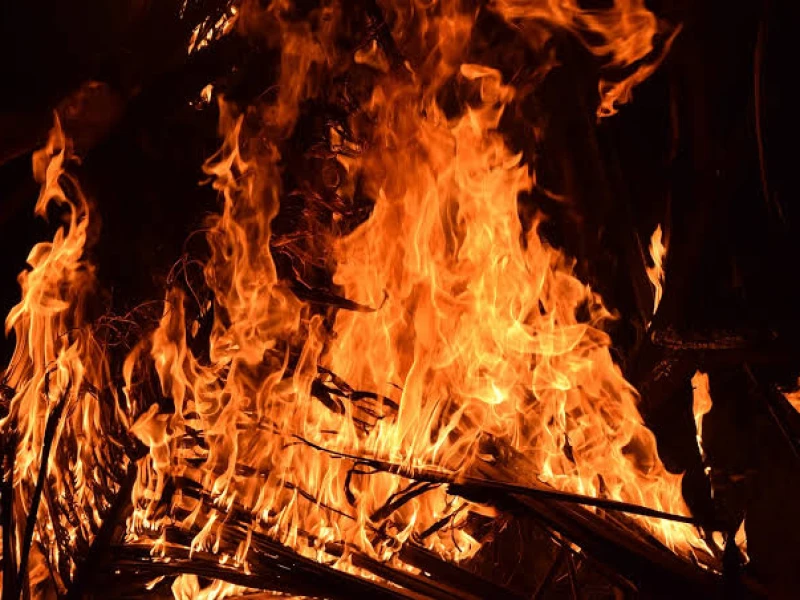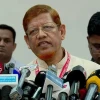Bangladesh’s journey towards democracy remains a long-cherished aspiration, yet the path to stability appears increasingly uncertain amid a fresh wave of political violence ahead of the upcoming national election, scheduled for February 2026.
The latest incident occurred in Chattogram on Wednesday, when armed miscreants opened fire during a campaign event for Bangladesh Nationalist Party (BNP) candidate Ershad Ullah, leaving one man dead and two others injured.
The attack took place around 6pm at East Bayezid Hamzarbagh (Chalitati) in the port city. The deceased was identified as 48-year-old Sarwar Babla, though police said his full identity was yet to be confirmed.
Officer-in-Charge of Bayezid Police Station Arifur Rahman said gunmen suddenly appeared during Ershad Ullah’s campaign and opened fire, killing Sarwar on the spot and injuring Ullah and another man, identified as Shanto, a local leader of Jubo Dal.
The incident has sparked outrage and renewed fears of escalating political unrest as parties gear up for a crucial election that many hope will restore democratic order after years of turmoil.
BNP Condemns Attack, Calls It a Plot
BNP Secretary General Mirza Fakhrul Islam Alamgir condemned the attack, describing it as a “clear attempt to create chaos and disrupt the upcoming 13th national election.”
In a strongly worded statement, Fakhrul demanded the immediate arrest and exemplary punishment of the perpetrators.
Such incidents have been carried out with the aim of putting the current interim government in difficulty and obstructing the upcoming national election,” he said.
The BNP leader termed the incident a “brutal and inhuman attack” and accused certain quarters of trying to plunge the nation into instability. “After the fall of the autocratic Awami regime through the student-led mass movement, some miscreants are once again attempting to create anarchy for their own gain,” he said.
Fakhrul called on citizens of all political affiliations to unite in defence of democracy, voting rights, and public safety. “If we fail to remain united, these miscreants, lying in wait, will rise again and threaten the very existence of our country,” he warned.
He also prayed for the swift recovery of Ershad Ullah and others injured in the shooting.
An Uncertain Path to Stability
Following the ouster of Sheikh Hasina’s regime in August 2024, Bangladesh has entered one of its most turbulent political periods in recent history. A military-backed interim government led by Nobel laureate Professor Muhammad Yunus has been in power since her removal.
The interim administration initially pledged to oversee a quick return to democracy, but the process has been repeatedly delayed amid demands for sweeping institutional reforms.
Political activities of the Awami League remain banned pending trials related to alleged mass killings during the July–August 2024 protests that led to the regime’s downfall.
In this political vacuum, the BNP—led by former Prime Minister Khaleda Zia—along with the Islamist party Jamaat-e-Islami and the newly formed National Citizen Party (NCP), spearheaded by student leaders, have emerged as key players in shaping the new political order.
Debates and Discontent under the Interim Government
Since assuming power, the Yunus administration has faced growing criticism for failing to deliver on its promises of reform and stability. The government’s proposed July National Charter—a blueprint for institutional reform—has been mired in disputes, stalling progress towards the February 2026 election.
Observers say the prolonged uncertainty has eroded public confidence, with citizens increasingly anxious about both political and economic futures.
Economic Strain and Public Frustration
The country’s economy has also come under immense strain since the fall of the Hasina government. Widespread disruptions to trade, investment, and employment have deepened public frustration, while inflation and a weakening currency continue to hurt ordinary households.
Analysts note that the worsening law and order situation is further undermining the interim government’s legitimacy.
Shifting Regional Dynamics
Bangladesh’s foreign relations have undergone significant realignment over the past year. Ties with India have cooled sharply after New Delhi offered refuge to Sheikh Hasina following her ouster. In contrast, the interim administration has sought to strengthen ties with China, which has moved quickly to engage with the new leadership as well as with the BNP and Jamaat-e-Islami.
Adding to the regional complexity, the ongoing conflict in Myanmar between the military junta and the Arakan Army has destabilised Bangladesh’s southeastern border. The United Nations’ proposal for a humanitarian corridor into Rakhine State has raised additional security concerns, particularly for both Bangladesh and India.
Army’s Stance on Free and Fair Elections
Amid the escalating tension, the Bangladesh Army has reaffirmed its commitment to a peaceful and credible electoral process.
Lt Gen Md Mainur Rahman, General Officer Commanding (GOC) of the Army Training and Doctrine Command (ARTDOC), said the army is prepared to support the election in line with the government’s roadmap.
Like the people of the country, the Bangladesh Army also wants a free, fair, and neutral election according to the government’s outlined framework. We believe that if the election is held properly, national stability will improve, the law and order situation will normalise, and the army will be able to return to the cantonments,” he told a press briefing at the Army Headquarters on Wednesday.
He acknowledged that the prolonged deployment of troops in support of civil administration over the past 15 months has disrupted routine training but affirmed that the army has performed its duties “with the highest level of professionalism.”
A Fragile Calm Ahead of the Polls
As Bangladesh inches closer to its much-anticipated general election, the recent gun attack in Chattogram serves as a stark reminder of the volatility that continues to shadow the country’s democratic aspirations.
While the interim government and the army pledge to ensure a peaceful transition, the persistence of violence and political polarisation suggests that the road to a stable democracy remains fraught with challenges.


 Prev Post :
Prev Post :
